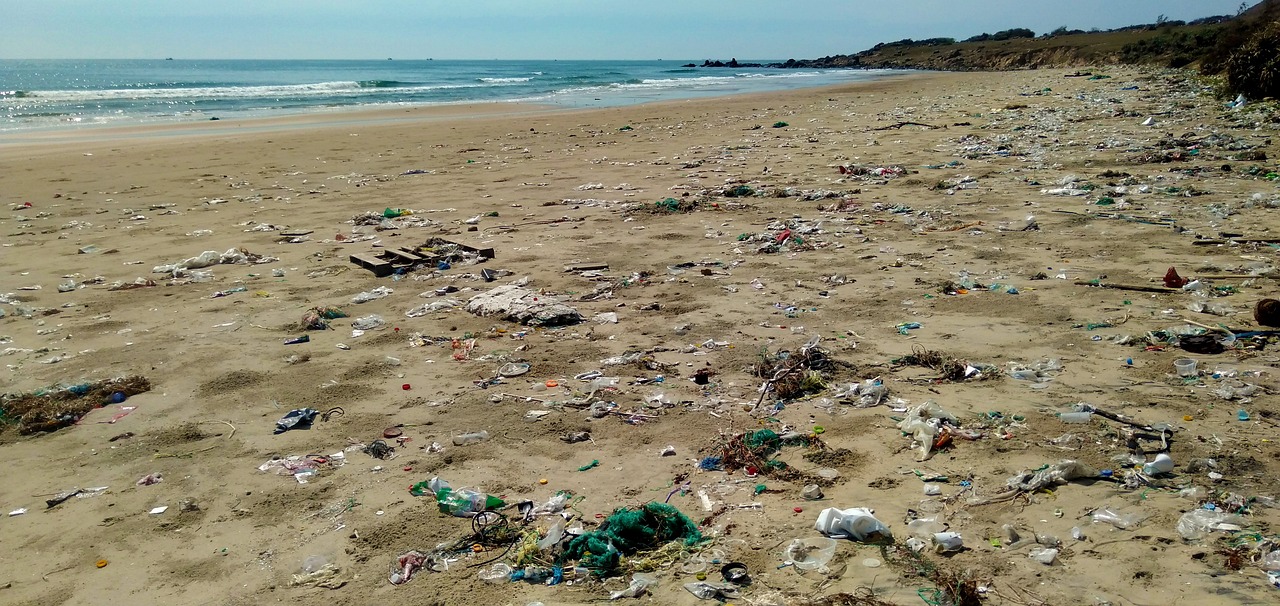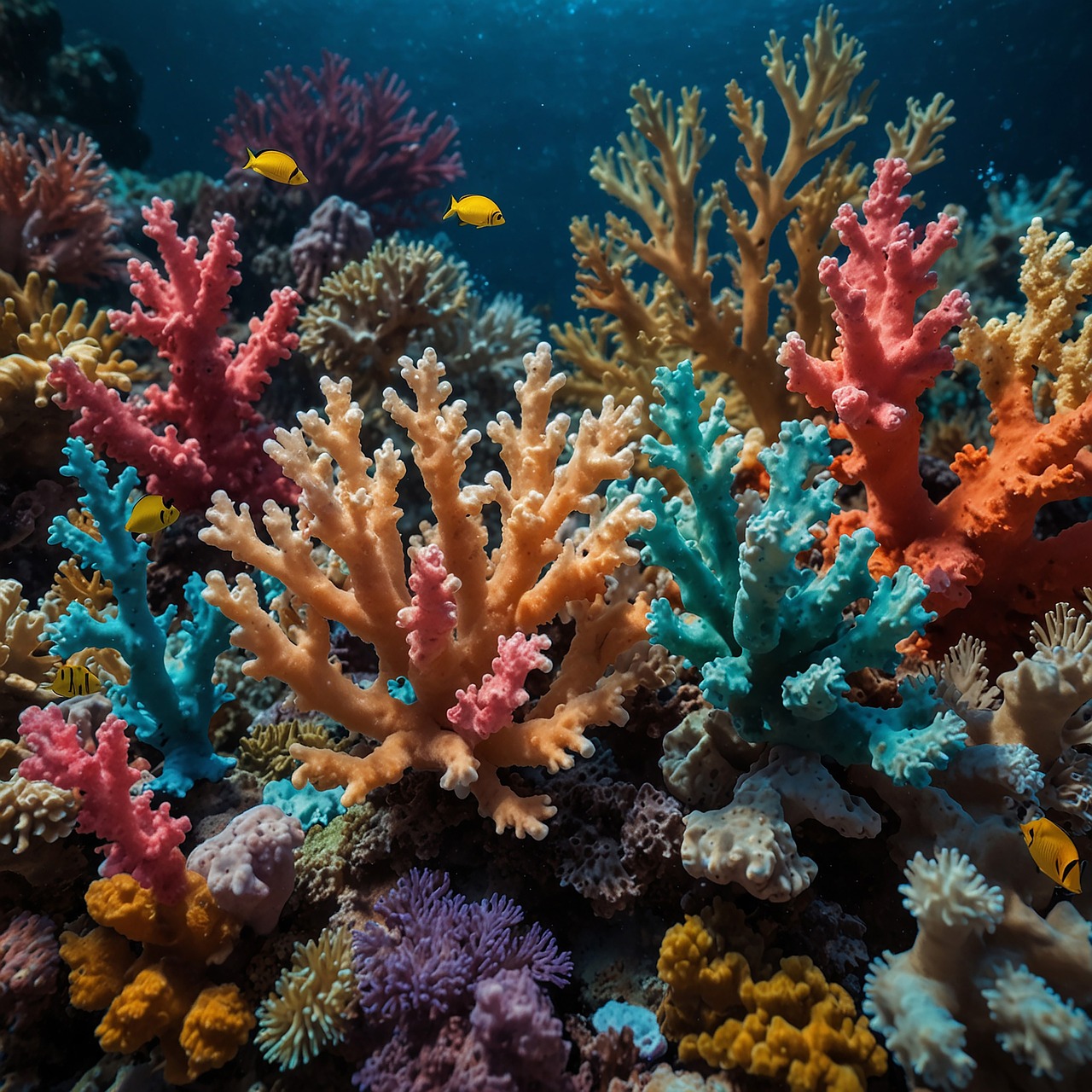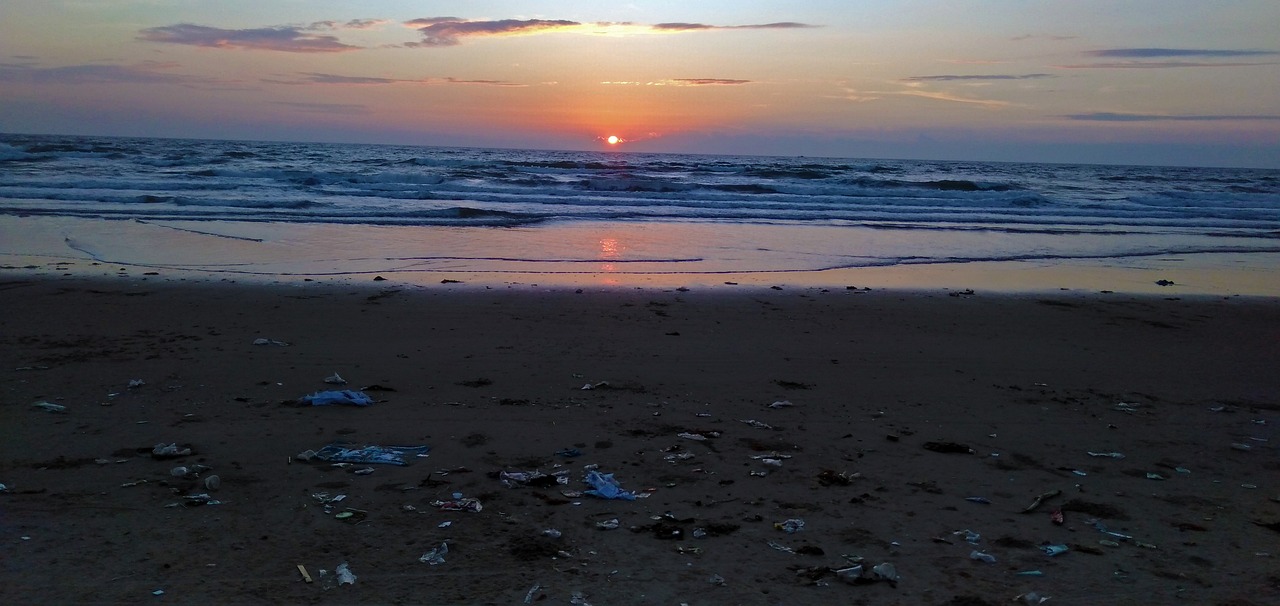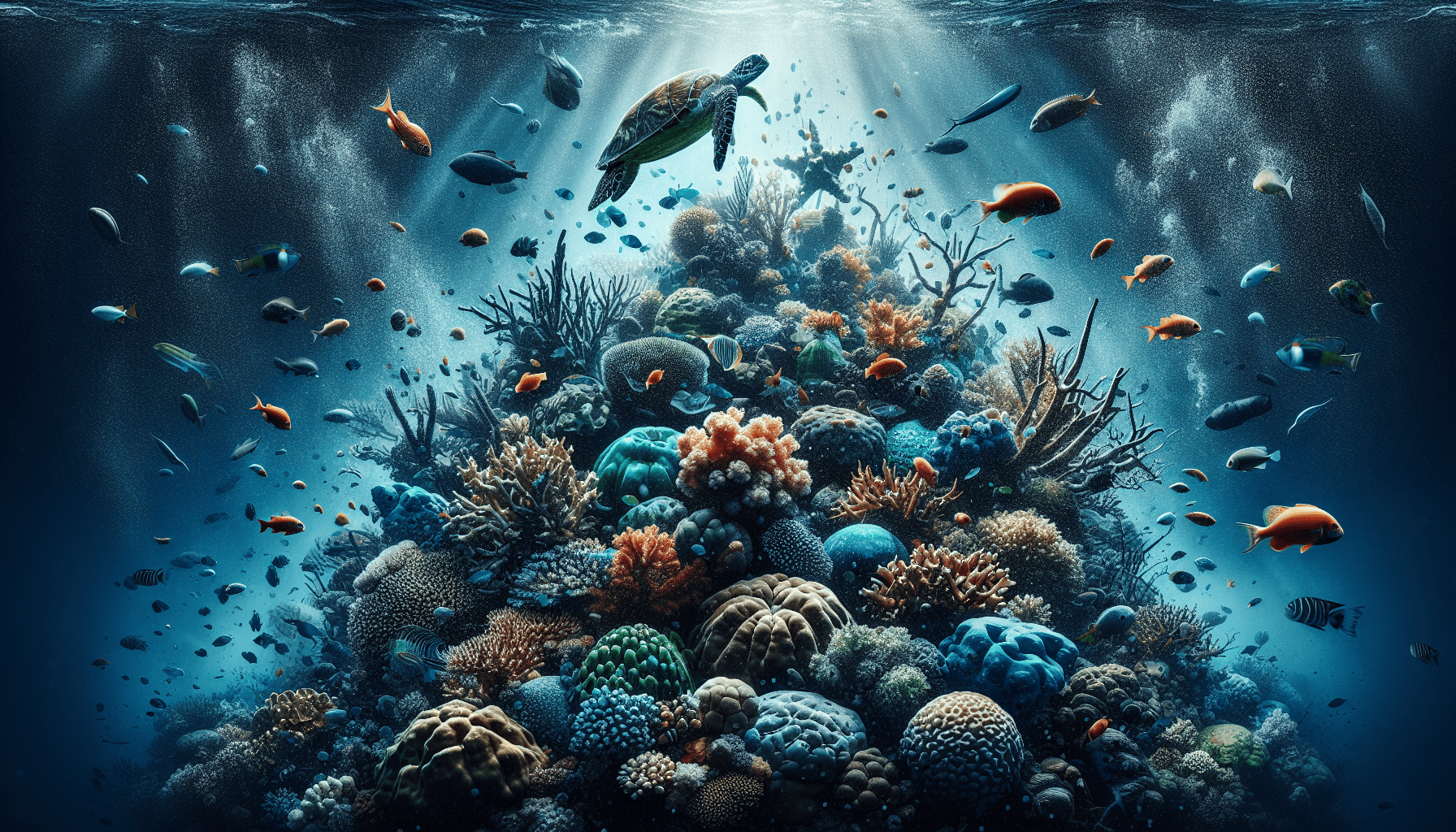Hey everyone! Let’s dive into the many wonderful benefits of marine conservation and why it matters to all of us. Marine conservation is more than just a buzzword; it’s our collective effort to protect and restore the oceans and their diverse ecosystems. By investing in marine conservation efforts, we not only preserve the incredible biodiversity that thrives in our seas, but we also safeguard vital resources that millions of people depend upon. Clean water, sustainable fisheries, and healthy coral reefs are just a few treasures we can continue to enjoy and pass down to future generations. Plus, the healthier the oceans, the more robust our planet is in facing climate change and supporting life—human or otherwise. Together, we can make a positive impact! What are the benefits of marine conservation?
Have you ever wondered how vital our oceans are to the health of our planet and ourselves? Marine conservation is a topic that often gets left out of our daily conversations, yet it’s crucial for maintaining the life-sustaining balance of our ecosystems. Let’s dive into this important subject together and explore the numerous benefits of marine conservation.
The Essence of Marine Conservation
Marine conservation involves the protection and preservation of ecosystems in oceans and seas. It focuses on limiting human-caused damage to marine ecosystems and restoring these environments whenever possible. Our oceans cover more than 70% of the Earth’s surface and harbor extraordinary biodiversity, making them a critical component of earth’s life support system.
What is Marine Conservation?
Marine conservation is not just about saving marine species, but also about protecting the entire habitats and ecosystems. It involves various practices such as establishing marine protected areas, regulating fishing, reducing pollution, and rehabilitating damaged environments. As stewards of the planet, our role in marine conservation is indispensable for the health and future of our world.
Why is Marine Conservation Important?
By conserving marine environments, we not only protect the oceans but also ensure the health and well-being of countless species, including ourselves. The oceans play a crucial role in regulating the global climate, supporting a myriad of marine life, and providing resources that humans depend on, from food to medicine. Without dedicated conservation efforts, the health of our oceans—and consequently our planet—could be severely compromised.
Environmental Benefits of Marine Conservation
One of the primary reasons to focus on marine conservation is its numerous environmental benefits. By taking actions to protect and preserve marine ecosystems, we contribute to a healthier planet.
Biodiversity Protection
Marine conservation helps protect biodiversity, which is essential for the resilience of ecosystems. Diverse ecosystems are more robust and can recover from disturbances more quickly.
| Threat to Biodiversity | Impact |
|---|---|
| Overfishing | Leads to the depletion of fish stocks, disrupting food webs and causing imbalances in the ecosystem. |
| Habitat Destruction | Destruction of coral reefs and mangroves eliminates crucial breeding and feeding grounds for species. |
| Pollution | Contaminates water, harming marine life and altering natural processes essential for ecosystem health. |
Protecting biodiversity ensures that these ecosystems can continue to provide the services that humans and other life forms depend on.
Ecosystem Services
Ecosystems provide services that are vital for human survival. Healthy marine ecosystems contribute to clean air and water, provide food, regulate climate, and protect shorelines.
| Ecosystem Service | Description |
|---|---|
| Climate Regulation | Oceans act as carbon sinks, absorbing CO2 and helping regulate the global climate. |
| Food Provision | Marine ecosystems provide a significant portion of the global fish supply. |
| Shoreline Protection | Coral reefs and mangroves protect coastlines from erosion and storm surges. |
| Water Purification | Marine habitats filter pollutants out of the water before they reach the shore. |
Climate Change Mitigation
Marine conservation can play a crucial role in mitigating the effects of climate change. Healthy oceans can absorb carbon dioxide from the atmosphere, acting as a buffer against global warming.
| Area of Climate Action | Role in Mitigation |
|---|---|
| Carbon Sequestration | Oceans absorb approximately 30% of the CO2 emissions produced by human activities. |
| Coastal Habitat Preservation | Mangroves and seagrasses store significant amounts of carbon, acting as natural carbon sinks. |
| Ocean Temperature Regulation | Healthy marine ecosystems help stabilize ocean temperatures, which is vital for maintaining global climates. |

Economic Benefits of Marine Conservation
Aside from environmental gains, marine conservation brings substantial economic benefits. Let’s examine how conserving our oceans translates to economic prosperity.
Tourism and Recreation
Marine conservation areas attract tourists interested in exploring pristine natural environments. This influx of tourists supports local economies and provides jobs.
| Economic Activity | Benefits |
|---|---|
| Eco-Tourism | Generates income for local communities through sustainable tourism activities. |
| Recreational Fishing | Attracts anglers interested in catching diverse, abundant fish, bringing revenue to local areas. |
| Marine Parks | Create employment opportunities in park management, guiding, and related services. |
Fishing Industry Sustainability
Sustainable fishing practices ensured through marine conservation preserve fish stocks, ensuring long-term viability of the fishing industry.
| Conservation Practice | Economic Impact |
|---|---|
| Establishing Quotas | Prevents overfishing, ensuring the long-term health of fish populations and industry profits. |
| Seasonal Closures | Allows fish populations to reproduce, maintaining stock levels for future catches. |
| Marine Protected Areas | Provide safe havens where fish can breed and grow, replenishing populations outside the area. |
Enhancing Coastal Resilience
Healthy marine ecosystems protect coastlines by reducing erosion and buffer storm impacts, diminishing the costs related to coastal damage.
| Coastal Protection | Economic Benefit |
|---|---|
| Natural Barriers (e.g., reefs) | Reduce the need for expensive artificial structures to protect coastal properties. |
| Flood Mitigation | Healthy mangrove forests prevent flooding, saving money on disaster relief and infrastructure repair. |
Social and Community Benefits of Marine Conservation
The impacts of marine conservation extend into societal benefits, improving human health, and fostering community well-being.
Food Security
By ensuring sustainable ocean resources, marine conservation helps secure a stable food supply for communities worldwide.
| Resource Security | Human Impact |
|---|---|
| Sustainable Fisheries | Ensure long-term availability of fish, which is a primary protein source for millions of people. |
| Aquaculture | Supports sustainable farming of fish and other marine products, reducing over-reliance on wild stocks. |
Human Health Improvements
Healthy oceans mean healthier food resources. Less polluted oceans provide fish and seafood that are safer for human consumption.
| Health Aspect | Impact on Communities |
|---|---|
| Food Safety | Reduces the likelihood of harmful pollutants like mercury and plastics entering the human food chain. |
| Mental Health | Access to clean, healthy marine environments promotes mental well-being and recreational opportunities. |
Cultural and Educational Opportunities
Marine conservation fosters a deeper understanding of the natural world, enriches cultural connections and provides educational opportunities.
| Learning and Culture | Community Impact |
|---|---|
| Environmental Education | Programs and initiatives increase awareness and understanding of marine issues among all age groups. |
| Cultural Heritage | Coral reefs, coastal habitats, and marine species hold cultural significance for many communities, both indigenous and modern. |

Advancements in Science and Medicine
Marine conservation also accelerates scientific research, leading to medical breakthroughs and technological advancements.
Marine Research
Conservation efforts often create opportunities for scientific research, leading to new discoveries about marine life and ecosystems.
| Research Area | Potential Discoveries |
|---|---|
| Marine Biology | New species identification and understanding of marine organism behaviors and interactions. |
| Oceanography | Insights into ocean currents, climate impacts, and ecosystem dynamics. |
Medical Innovations
Many marine organisms have unique compounds that can lead to new medical treatments and pharmaceuticals.
| Marine-Derived Compounds | Medical Application |
|---|---|
| Bioactive Compounds | Development of new antibiotics, anti-cancer medications, and anti-inflammatory agents from marine organisms. |
| Enzymes and Proteins | Innovations in biotechnology, such as DNA sequencing and synthetic biology, drawing from marine life. |
The Role of Policy and Regulation in Marine Conservation
Policies and regulations play a crucial role in fostering marine conservation. Government actions, international agreements, and community enforcement mechanisms shape the future of our oceans.
Government Policies
Effective marine conservation requires strong legislative frameworks that protect marine environments and enforce sustainable practices.
| Policy Type | Impact |
|---|---|
| Marine Protected Areas (MPAs) | Designate areas for protection, minimizing human activities that harm marine ecosystems. |
| Fishing Regulations | Set quotas, size limits, and seasonal restrictions to prevent overfishing and ensure sustainable practices. |
| Pollution Control | Enforce regulations on waste disposal, industrial runoff, and plastic use to reduce ocean pollution. |
International Agreements
Global cooperation is vital, as oceans do not respect national boundaries. International treaties and agreements help synchronize conservation efforts.
| Agreement | Purpose |
|---|---|
| United Nations Law of the Sea | Establishes guidelines for the protection and sustainable use of marine resources. |
| Convention on Biological Diversity | Aims to address the loss of biodiversity and work towards sustainable development. |
| MARPOL Convention | Seeks to minimize marine pollution from ships, including operational and accidental causes. |
Community and Indigenous Leadership
Local communities and indigenous peoples possess invaluable knowledge and a vested interest in maintaining healthy marine environments.
| Leadership Role | Contribution |
|---|---|
| Indigenous Stewardship | Incorporate traditional ecological knowledge and sustainable practices into modern conservation. |
| Community-Based Management | Empower local communities to manage marine resources, ensuring the enforcement of conservation measures. |

How We Can Help
Everyone has a role to play in marine conservation. Small actions by many individuals can collectively make a significant impact. Here are ways we can contribute:
Reducing Plastic Use
Plastic pollution is one of the most significant threats to marine life. Simple changes, like using reusable bags, bottles, and straws, can reduce plastic waste entering our oceans.
Supporting Sustainable Seafood
Choosing sustainably sourced seafood helps reduce the pressure on fish populations and promotes better fishing practices. Look for certifications like the Marine Stewardship Council.
Participating in Cleanup Activities
Joining beach and ocean cleanup initiatives can directly reduce the pollution in marine environments and raise awareness about the importance of clean oceans.
Advocating for Marine Protection
Supporting policies and politicians who advocate for marine conservation can lead to stronger protection measures and increased funding for research and conservation projects.
Educating and Spreading Awareness
By informing others about the importance of marine conservation and the steps they can take to help, we can multiply our impact. Education initiatives in schools and communities can start meaningful conversations and actions.
The Future of Marine Conservation
The future of our oceans depends on the actions we take today. By prioritizing marine conservation, we protect biodiversity, enhance economies, support communities, and foster scientific advancements. It is a mutually beneficial endeavor that promises a healthier planet for future generations.
In conclusion, the benefits of marine conservation are vast and varied. They span environmental, economic, social, and scientific spheres, offering immense value to both human societies and the natural world. Let’s commit to playing our part, however small, in conserving the oceans that sustain us. Together, we can make a difference.




